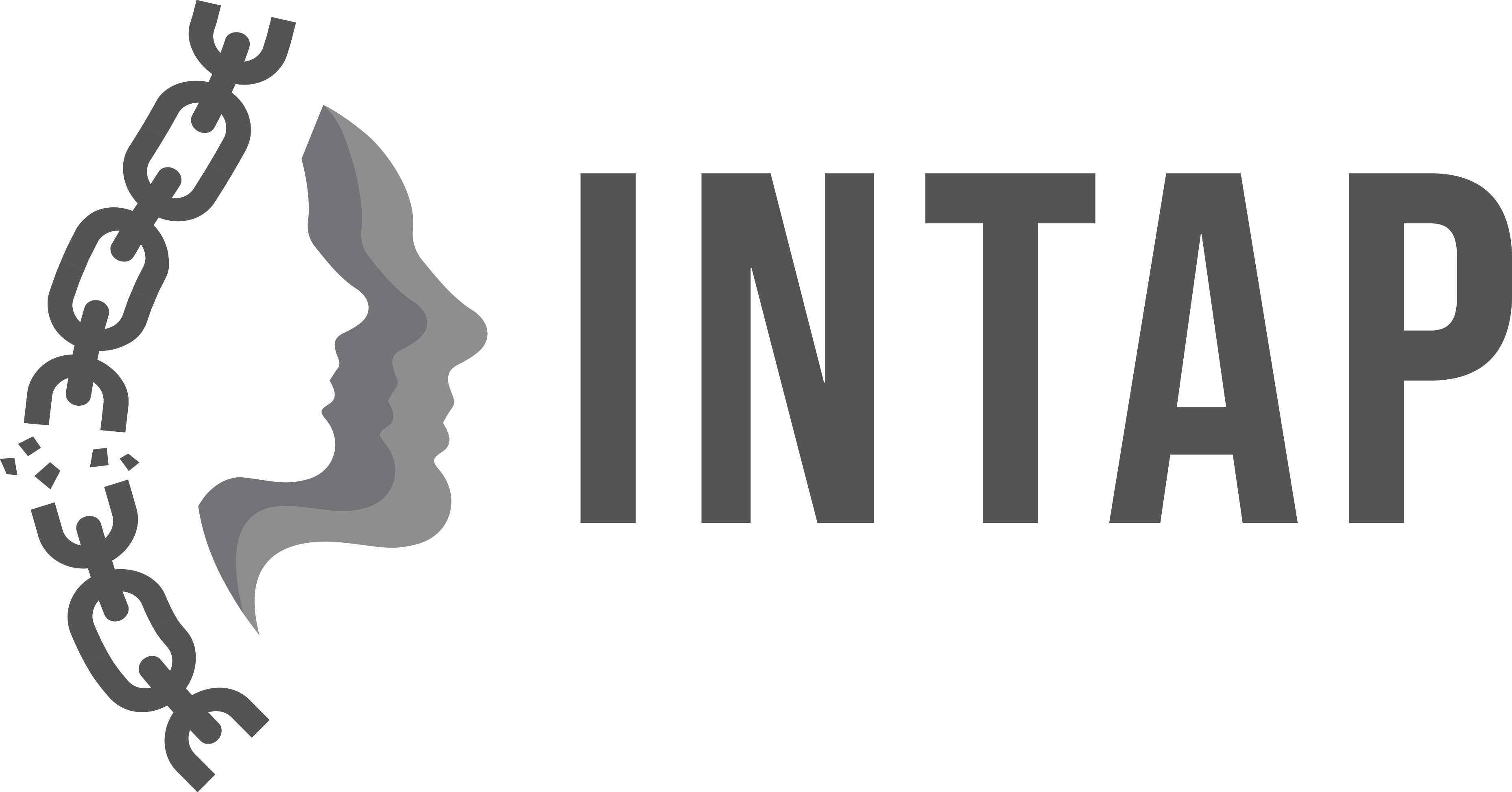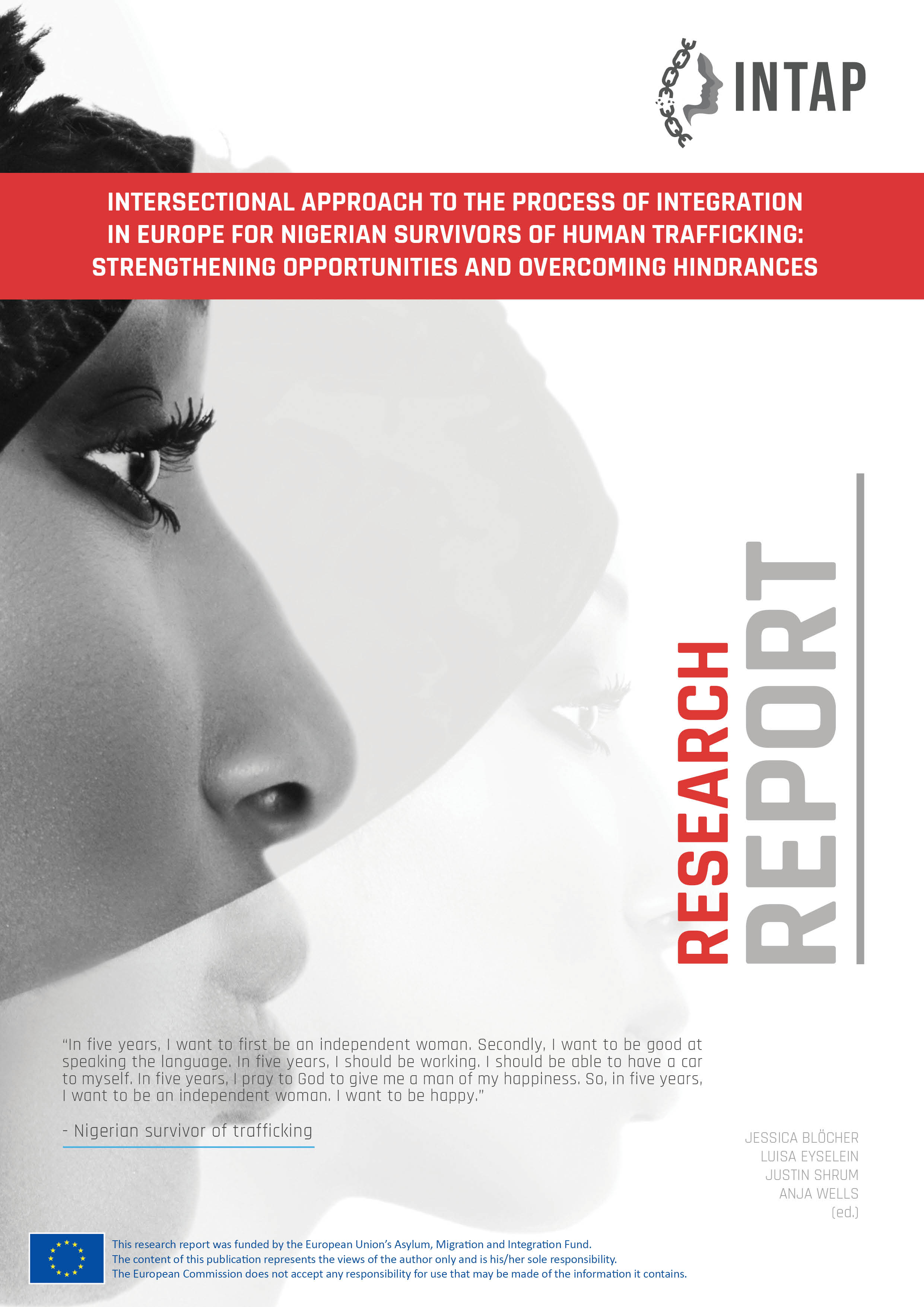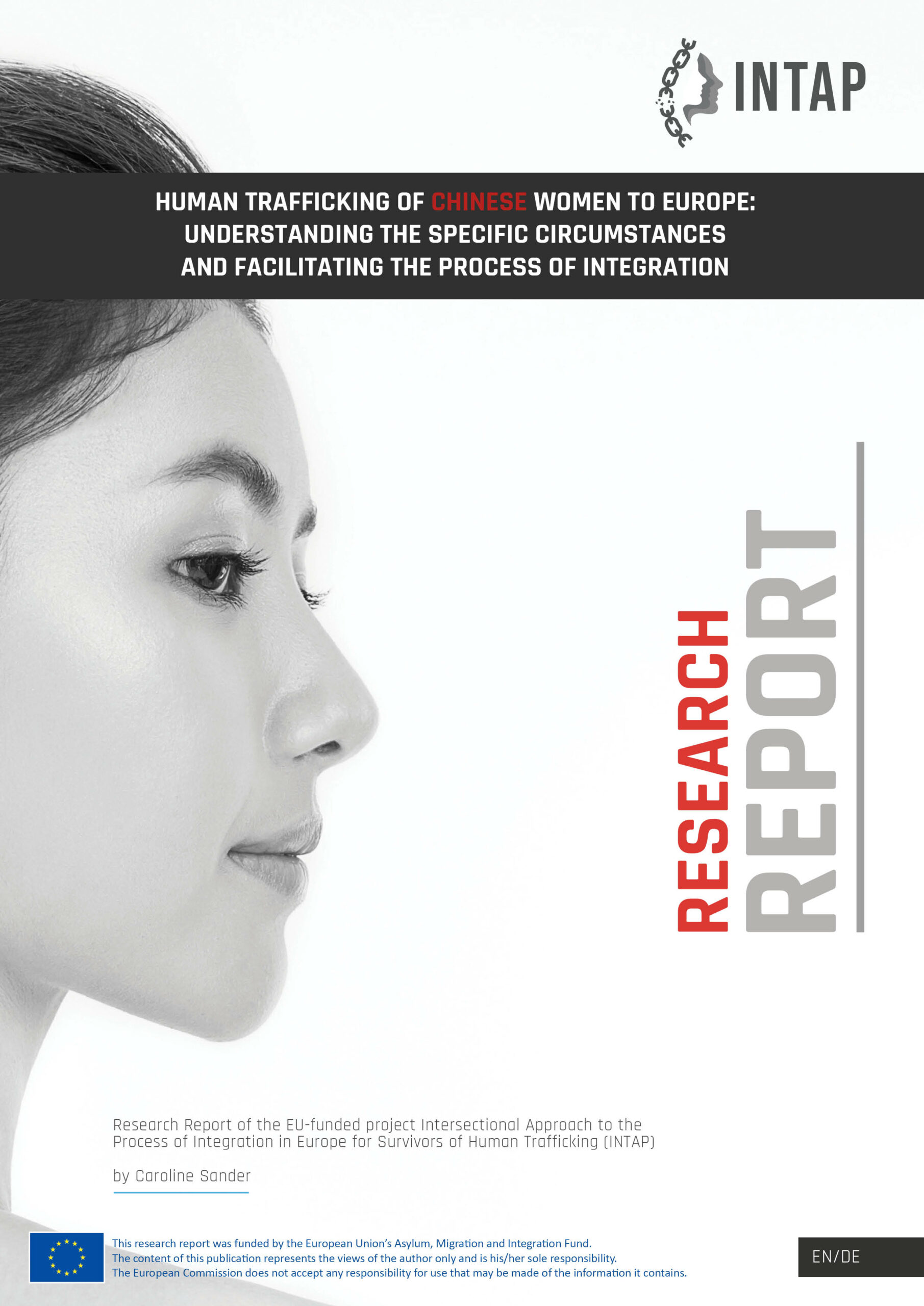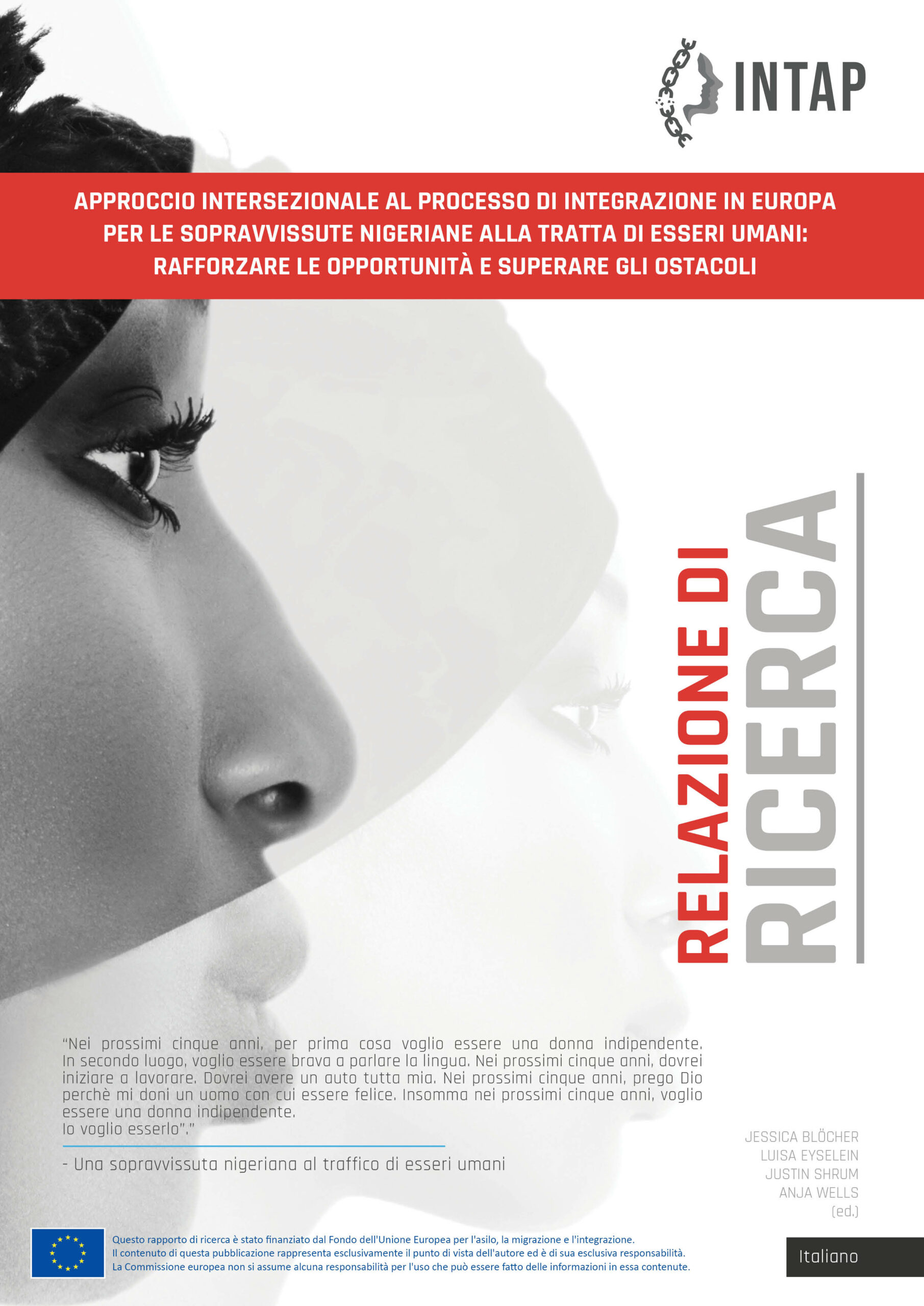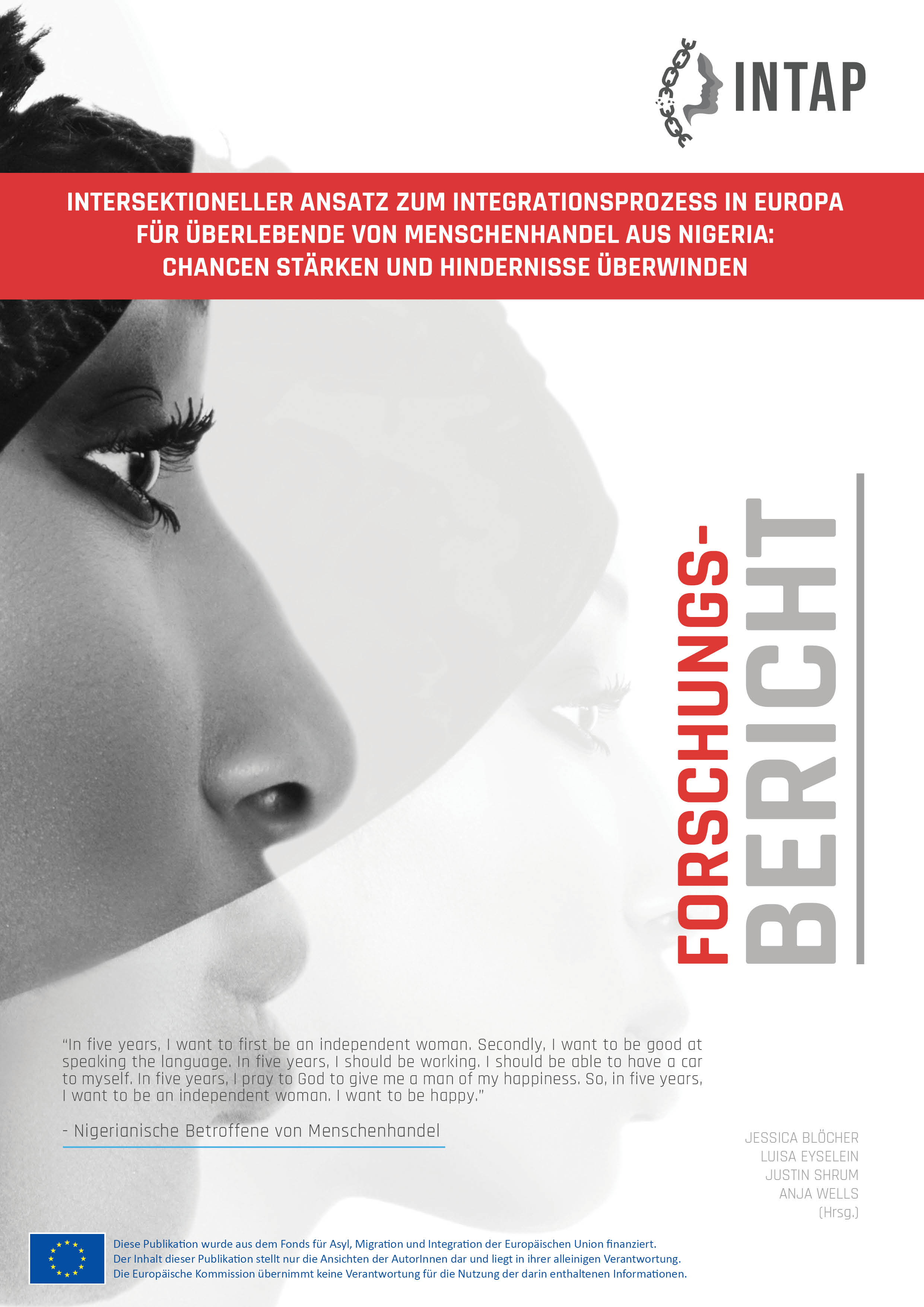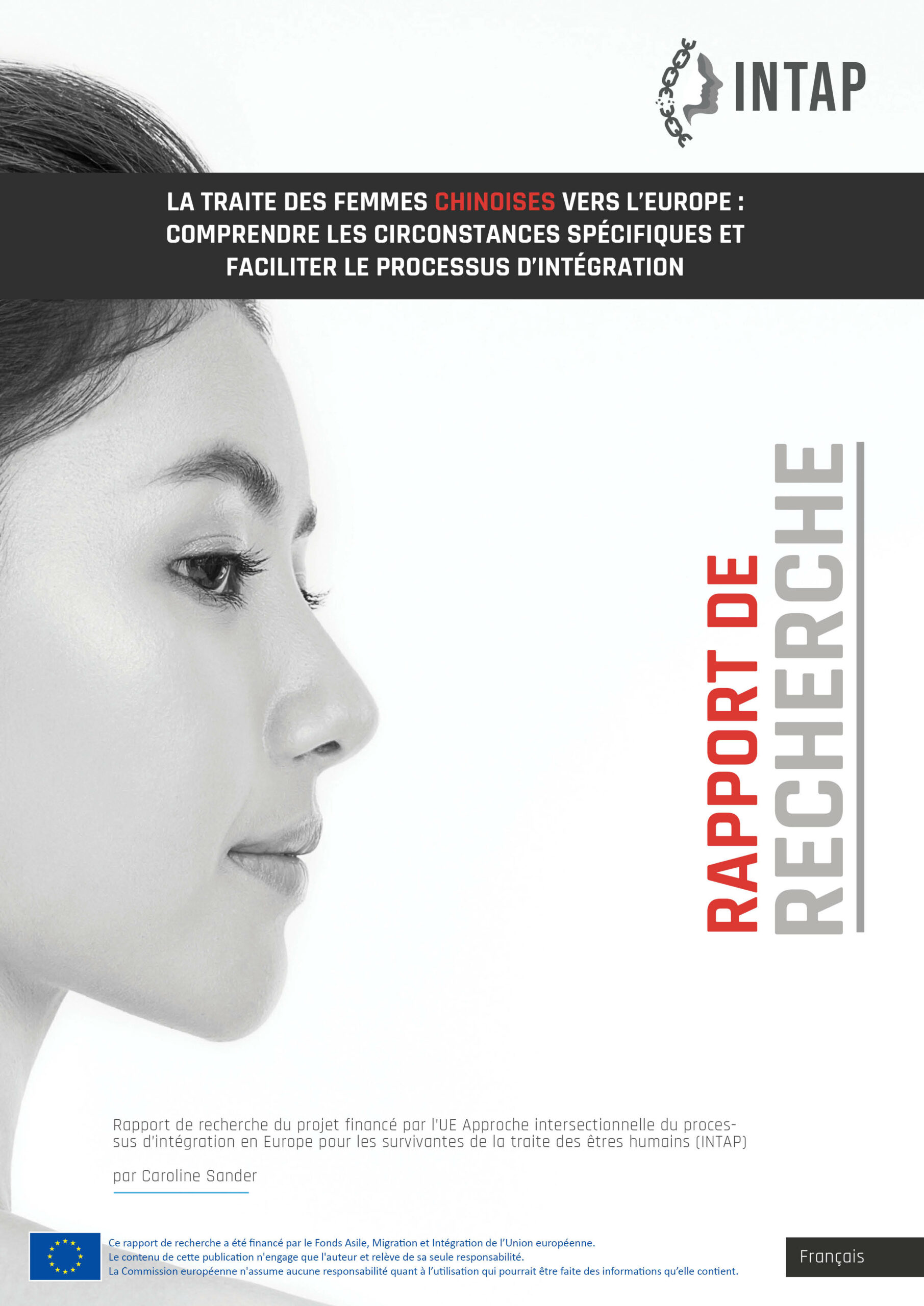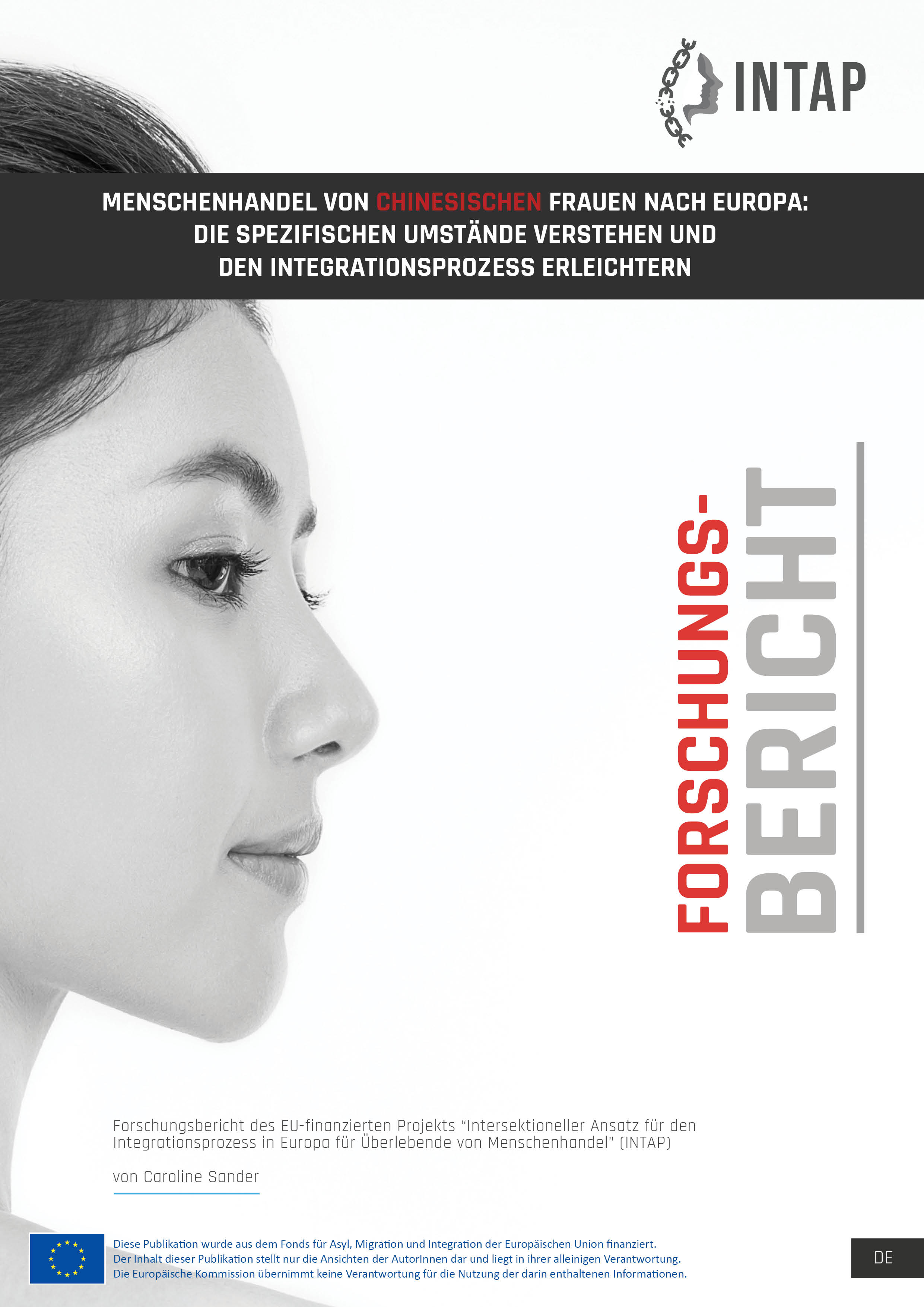The qualitative study was conducted with 35 Nigerian stakeholders, 18 experts and 2 focus groups. The data was collected through a semi-structured qualitative interview with questions on different aspects of integration. The data was transcribed with the software MAXQDA and analyzed according to Mayring.
The most important results of this study are the role of a person of trust as the greatest opportunity and the role of fear as the greatest obstacle to SoT integration. Further implications are the need for more state funding for gender-specific and mother and child friendly safe housing as well as social workers and NGOs specialized in affected persons. Asylum policy must be adapted to refrain from deporting SoT. In parallel, the EU member states should release more funds for anti-racism and other social policy projects to counteract hostility to refugees in society.
As a brief overview of the content:
Chapter 2 gives the context of the study and presents the state of research. Readers interested in the methodological approach can go to Chapter 3. Readers who are most interested in specific topics within integration (e.g., health care system, housing, etc.) can read this in Chapter 4 with the specific code summaries. Practitioners (e.g. social workers, volunteers, etc.) whose focus is on practical implications can go directly to Chapters 5.2 and 5.3.
According to the data collection on trafficking in human beings in the EU (European Commission 2018), between 2010 and 2016 Chinese women and girls represented the third largest group of registered third country nationals who became victims of trafficking in the EU. Trafficking from East Asia traditionally mainly affected Thai women, but suddenly more and more Chinese nationals were affected, who are exploited mainly in indoor prostitution, such as massage parlors, saunas or beauty centers (UNODC 2010). There is still very little research on Chinese trafficked persons in Europe and much more needs to be found out about their specific circumstances.
The research report aims precisely at this: firstly, to provide more information on how trafficking of Chinese women to Europe actually works and what the specific challenges are for the victims. Second, to find out how best to facilitate their integration process into the European society of the host country. Based on an extensive literature review, the research will focus on qualitative interviews with Chinese trafficked persons (SoTs) on the one hand and on expert interviews with relevant authorities, specialized NGOs and Chinese cultural and language experts on the other hand. Apart from aspects such as language, access to the labor market, residence issues or the Chinese community, two particularly prominent elements of this research proved to be outstanding: the positive influence of a so-called person of trust and the negative influence of fear and shame - the latter as an intrinsic element of Chinese culture.
Factual background info and statistics:
Data collection on trafficking in human beeings in the EU (European Commission)
Global Report on Trafficking in persons 2018 (United Nations Office on Drugs and Crime UNODC)
Trafficking in Persons Report 20th Edition June 2020 (United States Department of State Publication, Office to Monitor and Combat Trafficking in Persons)
Bundeslagebild Menschenhandel 2018 (Bundeskriminalamt Germany)
